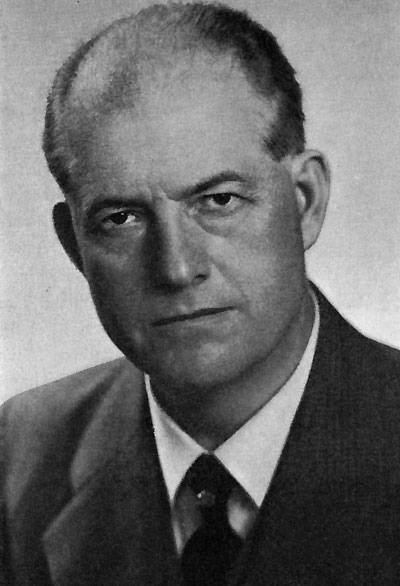Oskar Lindberg (composer) on:
[Wikipedia]
[Google]
[Amazon]
 Oskar Fredrik Lindberg (23 February 1887 – 10 April 1955) was a
Oskar Fredrik Lindberg (23 February 1887 – 10 April 1955) was a
(subscription access)
/ref> Lindberg participated in the production of the 1939 choral book. He also wrote many non-religious works, including a
 Oskar Fredrik Lindberg (23 February 1887 – 10 April 1955) was a
Oskar Fredrik Lindberg (23 February 1887 – 10 April 1955) was a Swedish
Swedish or ' may refer to:
Anything from or related to Sweden, a country in Northern Europe. Or, specifically:
* Swedish language, a North Germanic language spoken primarily in Sweden and Finland
** Swedish alphabet, the official alphabet used by ...
composer
A composer is a person who writes music. The term is especially used to indicate composers of Western classical music, or those who are composers by occupation. Many composers are, or were, also skilled performers of music.
Etymology and def ...
, church musician
A musician is someone who Composer, composes, Conducting, conducts, or Performing arts#Performers, performs music. According to the United States Employment Service, "musician" is a general Terminology, term used to designate a person who fol ...
, teacher and professor. In 1939 he edited the Church of Sweden
The Church of Sweden () is an Evangelical Lutheran national church in Sweden. A former state church, headquartered in Uppsala, with around 5.5 million members at year end 2023, it is the largest Christian denomination in Sweden, the largest List ...
's hymnbook. His 1912 ''Requiem'' was of particular importance to the history of Swedish liturgical works.
Biography
At the age of fourteen, Lindberg was already playing the organ at the high mass in his native Gagnef. He studied at the Royal Swedish Academy of Music from 1903 to 1911, where he graduated as an organist in 1906. At the same time, Lindberg studied composition with Ernst Ellberg and Andreas Hallén, but supplemented this with studies in conducting at the academy in Sondershausen, with further specialization in Germany and Austria. From 1906 to 1914 he worked as organist at Trefaldighetskyrkan in Stockholm and from 1914 to 1955 at Engelbrektskyrkan. He taught harmony at the Royal Academy of Music from 1919 to 1952 and was appointed professor there in 1936. At a meeting in Gagnefs missionary hall, he heard a song that made a deep impression on him. For a radio broadcast in 1936, he arranged an organ piece based on this melody which became known as the ''Gammal fäbodpsalm från Dalarna''. Today this is his best-known and most frequently performed work. He wrote in a romantic idiom which blended features of composers such asRachmaninoff
Sergei Vasilyevich Rachmaninoff; in Russian pre-revolutionary script. (28 March 1943) was a Russian composer, virtuoso pianist, and conductor. Rachmaninoff is widely considered one of the finest pianists of his day and, as a composer, one of ...
and Sibelius
Jean Sibelius (; ; born Johan Julius Christian Sibelius; 8 December 186520 September 1957) was a Finnish composer of the late Romantic and early modern periods. He is widely regarded as his country's greatest composer, and his music is often ...
with folk music and impressionistic elements.
Lindberg was also prominent as a teacher, holding posts in the conservatory in Stockholm
Stockholm (; ) is the Capital city, capital and List of urban areas in Sweden by population, most populous city of Sweden, as well as the List of urban areas in the Nordic countries, largest urban area in the Nordic countries. Approximately ...
as well as in local high schools. He was a member of the Swedish Royal Academy of music from 1926 until his death.Hans Åstrand, "Oskar Lindberg," Grove Music Online, ed. L. Macy (Accessed 5 February 2008)(subscription access)
/ref> Lindberg participated in the production of the 1939 choral book. He also wrote many non-religious works, including a
symphony
A symphony is an extended musical composition in Western classical music, most often for orchestra. Although the term has had many meanings from its origins in the ancient Greek era, by the late 18th century the word had taken on the meaning c ...
and symphonic poems. At a meeting in the Gagnef mission house, he heard a song that stuck in his mind. For a radio broadcast in 1936, he wrote an arrangement for organ based on this melody. He called the piece Gammal fäbodpsalm från Dalarna and it is probably the most widely performed work by Lindberg today.
Lindberg was born in Gagnef, Dalarna, Sweden in 1887. He died in Stockholm in 1955. He was the uncle of jazz musician and composer Nils Lindberg
Nils Lindberg (11 June 1933 – 20 February 2022) was a Swedish composer and pianist.
Biography
Lindberg was born in Uppsala on 11 June 1933. He was known both as a jazz composer and musician, but was also active in other styles. Several of his wo ...
.
As the Swedish title indicates, the melody that Lindberg made famous as "Gammal fäbodpsalm" was an already known traditional melody from the village of Älvdalen. The same melody is interpreted by Merit Hemmingsson on her 2021 album "Huvva vad tiden går". She attributes it to Bälter Erik Olsson, Älvdalen.References
External links
* 1887 births 1955 deaths 20th-century Swedish classical composers Classical composers of church music Litteris et Artibus recipients Swedish Romantic composers Swedish male classical composers Swedish classical organists Swedish male classical organists 20th-century organists 20th-century Swedish male musicians 20th-century Swedish musicians 19th-century Swedish male musicians {{Sweden-composer-stub